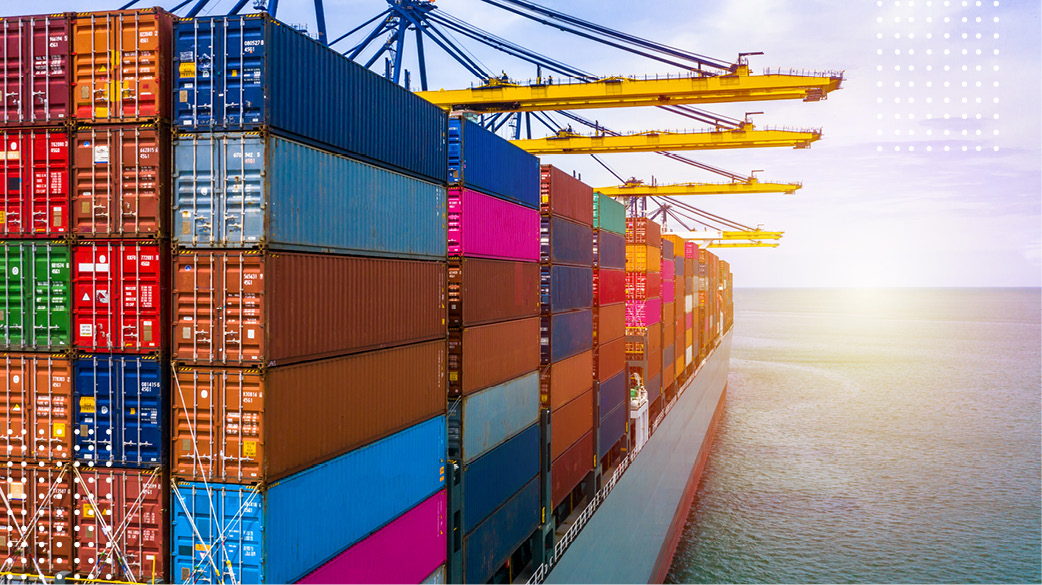Why Cargo Insurance is More Important than Ever
03/11/2021

In the last four months, significant weather events coupled with stretched vessel capacity levels, causing unprecedented volumes, have triggered six separate notable incidents causing tremendous losses to shippers. These maritime calamities have caused approximately 3000 containers to be ‘lost at sea,’ with hundreds more toppled, inflicting damage to the freight within them and the vessels carrying them. According to the World Shipping Council, this is a dramatic increase as the average loss since 2017 has been 779 containers annually.
The most prolific incident happened to One Apus on November 30, 2020, when the vessel encountered intense weather on its way from Yantian, China, to Long Beach, California. The storm caused 1816 containers, including 64 which housed freight classed as dangerous goods, to be dislodged from their moorings and plummet to the ocean’s bottom. Hundreds of additional containers lay toppled on the deck, which are currently being carefully removed from the vessel in port at Kobe, Japan. As one can expect, claim estimates are in the hundreds of millions of dollars with investigations underway, which will confirm if General Average rules apply.
So what does this mean for companies with cargo onboard? Our global transportation and trade experts are here to explain the situation and help shippers understand how cargo insurance can protect them from General Average.
What is General Average?
General Average is a principle of maritime law with ancient origins, requiring all parties with cargo on the vessel to proportionally contribute to the total loss based on the voluntary sacrificed cargo and vessel’s value. Shippers who did not purchase cargo insurance for their cargo would be held responsible for payment to the ocean carrier.
An Example
For example, if the vessel is valued at $100 million and the cargo is valued at $150 million, the total value of the voyage would be $250 million. If the cargo loss and vessel repairs cost $90 million (36 percent of the voyage value) and your cargo was valued at $10 million, you would have to contribute $3.6 million (36 percent of the value of your cargo).
This unexpected cost could be detrimental but there are three main ways you can protect your cargo:
1. Purchase Cargo Insurance
Cargo insurance protects shippers’ financial investments during ocean, air, rail or truck transportation. It provides compensation for shippers in the case of natural disasters, fires, vessel collisions, cargo theft or mishandling by carriers.
If cargo is insured, the process to recover the cost of damaged cargo is straightforward. The insurance company will manage the claim process on the shipper’s behalf, dealing with the various transportation parties involved. The insurance provider does its best to resolve the loss as quickly and efficiently as possible, minimizing the direct involvement of the client with the carriers.
2. Know Your Coverage
Insurance responsibility should always be outlined within the terms of sale between a buyer and seller. The terms of sale along with INCOTERMS will outline when and where responsibility is transferred between international buyers and sellers.
When securing cargo insurance, always insure the commercial invoice value PLUS the freight costs PLUS an additional 10 percent to cover incidental costs in the event of a loss. Choose ALL-RISK coverage, which provides complete coverage in the case of an event such as the One Apus tragedy, as well as loss, theft, and damage.
3. Have A Plan For Damaged Cargo
In the event of cargo damage, having a detailed contingency plan in place will help make the process easier. Documenting the breakpoint of when cargo should be salvaged or destroyed will help teams deal with damaged cargo. Additionally, these contingency plans should dictate where damaged cargo should be delivered to as well as who should be notified internally as well as externally with end customers.
Our team at Ascent Global Logistics is able to help you secure cargo insurance across all modes of transportation. We offer competitive rates, high-risk coverage and special quotes for large volume shippers. To learn more about our cargo insurance options, please contact us or speak directly with your Ascent Global Logistics representative.